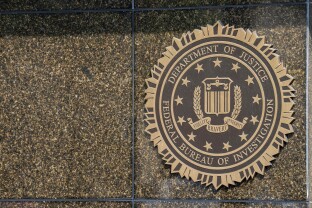Congress is at an impasse over whether to give Americans stronger privacy protections under the nation’s foreign surveillance laws. But lawmakers remain in the dark about a basic question underlying their debate: Just how many Americans are swept up in U.S. foreign spying in the first place?
Fierce disagreement among lawmakers prompted House Speaker Mike Johnson to delay a vote last week on renewing Section 702 of the Foreign Intelligence Surveillance Act, which expires in April. The fight is over whether to require intelligence agencies to get a warrant when searching their databases for information about Americans. Americans cannot be targeted under the law, but sometimes their communications are swept up when they communicate with foreigners who are being surveilled.
Critics contend that searching the U.S. spy databases for information about Americans amounts to warrantless surveillance. The Biden administration and many lawmakers in both parties oppose a warrant requirement.
